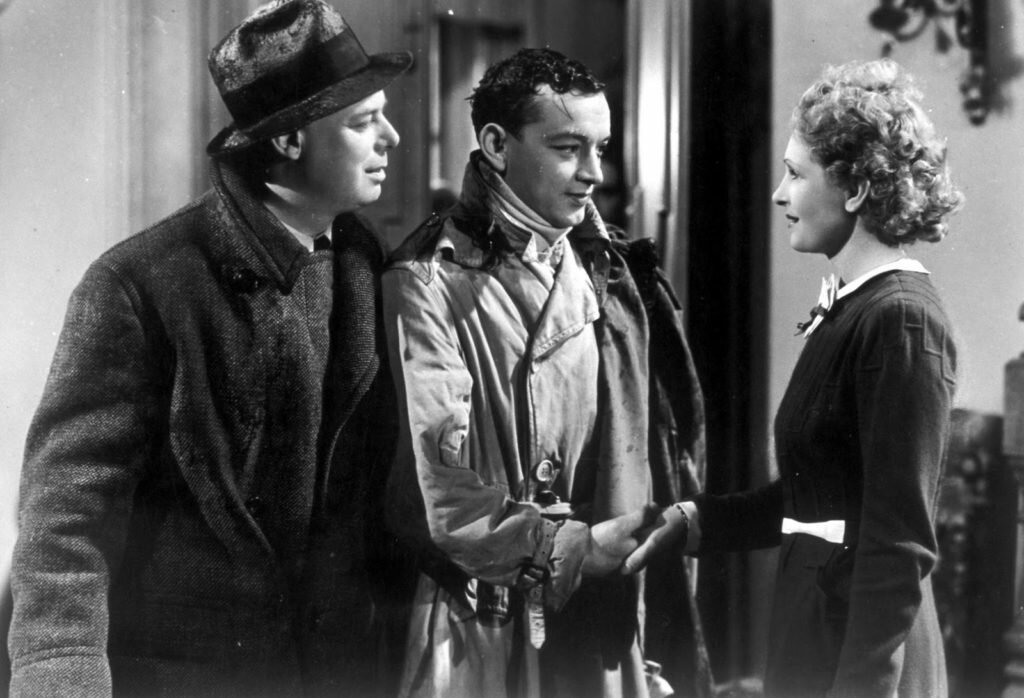 A dangerous discovery: The University library has the entire Criterion Collection available to stream. Suddenly these quiet summer afternoons in the office seem like golden opportunities to revisit old favorites.
A dangerous discovery: The University library has the entire Criterion Collection available to stream. Suddenly these quiet summer afternoons in the office seem like golden opportunities to revisit old favorites.
It’s too bad that Renoir’s Grand Illusion isn’t available through this service, because it’s the natural accompaniment to The Rules of the Game. Both films are about the fragility, or maybe the elasticity, of the conventions, taboos, and mores which govern civilized activities, whether social (in Rules of the Game) or political (in Grand Illusion). To live rigidly within those boundaries, like a cow keeping its wary distance from the electric fence, is to be doomed to dreariness: a frigid marriage, moronic jingoism. But to flagrantly transgress them is to risk chaos, alienation. The authentic life, then, is lived with one foot on either side of on an impossible and invisible line hidden beneath the snow, as seen at the end of Grand Illusion.
The Rules of the Game is an iron fist in a velvet glove. The main action takes place at a country estate, where a bunch of aristocrats are spending the weekend. On the surface it looks like a charming upstairs/downstairs melodramatic farce, with slamming doors, midnight rendezvous, stolen kisses, jealous husbands. But there’s a hard edge under the fizz. The party goes out for a hunt and Renoir subjects us to a relentless sequence of rabbit after rabbit after rabbit being shot dead in the dirt. And in the end, innocence itself lies down with them.
Renoir, famously, called The Rules of the Game a war movie, and indeed the alliances and enmities of the feckless aristocrats and territorial servants who populate the film are easily understood as metaphors for the pettinesses which were, in 1939, about to destroy a civilization.
All that, yes, but the movie’s no dirge; it’s French, and so is also filled with joy that literally makes me laugh out loud. And, far from least, this is the movie where one learns the proper method of making salade de pommes de terre. Crucial.




 I swear, sometimes I can’t tell if I’m a total snob or a total goat. My standards are on the one hand absurdly high; on the other hand it appears I’ll put just about anything into my eyes. Cartoons (or “animated films”) are an interesting test. I can be and have been persuaded equally by the assertion that they are only for children and the assertion that people who think they are only for children are myopic snobs. Anyway.
I swear, sometimes I can’t tell if I’m a total snob or a total goat. My standards are on the one hand absurdly high; on the other hand it appears I’ll put just about anything into my eyes. Cartoons (or “animated films”) are an interesting test. I can be and have been persuaded equally by the assertion that they are only for children and the assertion that people who think they are only for children are myopic snobs. Anyway. April and the Extraordinary World is French to the core. Twilit, melancholy, witty, fanciful, open-ended. It’s concerned with utopia and dystopia too, but far less concerned with determining tidy moral categories, which ironically opens a path to a far stronger sense of moral imperative. There’s also an abundance of historical consciousness here, which I love. Not least, it’s a lot more fun to look at the spiky, messy, impressionistic world of this cartoon than the uncannily smooth and bright world of Hollywood animation. I like that there are a lot of pratfalls in this, too. One thing that makes a cartoon good for grownups is a certain enforcement of silliness.
April and the Extraordinary World is French to the core. Twilit, melancholy, witty, fanciful, open-ended. It’s concerned with utopia and dystopia too, but far less concerned with determining tidy moral categories, which ironically opens a path to a far stronger sense of moral imperative. There’s also an abundance of historical consciousness here, which I love. Not least, it’s a lot more fun to look at the spiky, messy, impressionistic world of this cartoon than the uncannily smooth and bright world of Hollywood animation. I like that there are a lot of pratfalls in this, too. One thing that makes a cartoon good for grownups is a certain enforcement of silliness.